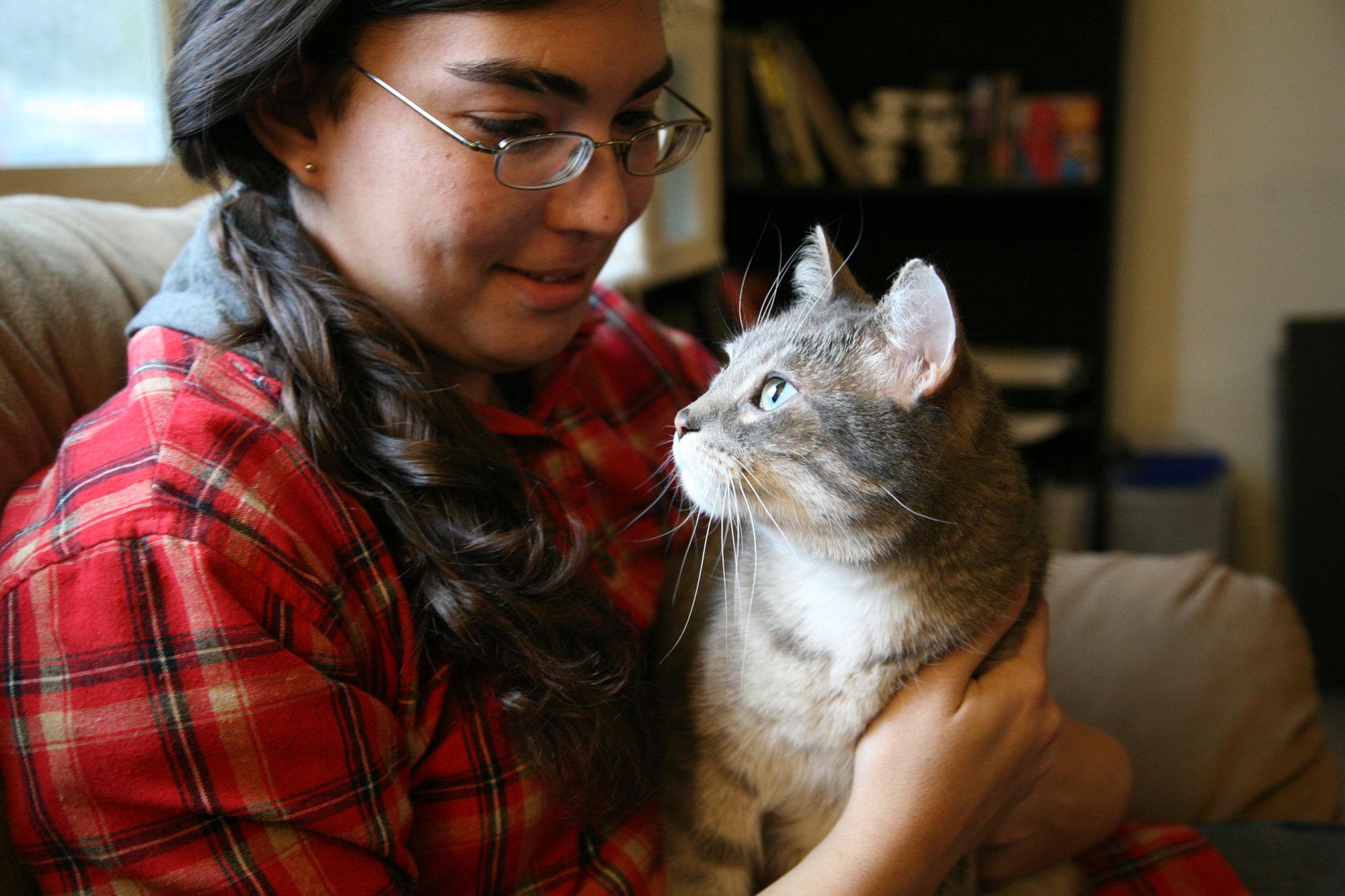

A.J. White has a matter-of-fact way of describing his mental issues. When he first arrived in the small town of Meeker as a teenager, he isolated himself, even ran away from home in the winter.
“It was ADHD, depression and extreme anxiety and suicidal tendencies, I suppose,” said the 22-year-old in a soft voice, as a fat, playful gray cat darted around his feet. A slender tiger-striped one watched cautiously from the stairs.
White’s cats, Haim and Genki, aren’t pets. They’re emotional support animals, and the agency that provides low-income housing in this rural northwestern Colorado community recently paid a settlement of about $1 million after a judge ruled it had discriminated against tenants who own them. It ends several years of litigation.
When White got the cats, his therapist wrote a letter to the Meeker Housing Authority explaining they're needed for his mental health.
They give White a reason to get out of bed in the morning.
“If you’ve been so secluded as much as I have, they’re pretty much the only things you have in your life,” he said.

That’s why it was so scary when, a few years ago, the MHA announced it would require a $300 fee per emotional support animal. At the time, the rent was $125 a month for the apartment A.J. shared with his dad, Lonnie.
To Lonnie White, the rule didn’t feel fair.
“I’m from Jersey, and there are just three things you just don’t mess with: My family, my home and my job. They messed with two of those,” he said. “Cats are family to me.”
The MHA refused a request to talk about the lawsuit, but there was a recording made several years ago, shortly after the policy change. In it, former resident Megan McFadden challenges MHA director Stacie Kincher over the new fee for her emotional support dog, Chewy.
“Legally, you can’t do that,” McFadden tells Kincher.
“For a therapy we can,” Kincher replies. “For a service animal —”
Then McFadden cuts in: “An emotional support animal is considered a service animal.”

Kincher tells McFadden she’ll talk to the housing board but that she already knows what they’re going to say, as McFadden continues to protest.
“You’re going to have to take us to court,” Kincher says.
McFadden and the Whites did, suing the MHA for violating the Fair Housing Act, which requires “reasonable accommodation” for people with disabilities.
Their attorney, Siddhartha Rathod, sees these animals as a fundamental, constitutional right.
“This is not about three plaintiffs, two cats and a dog,” he said. “It’s about how we treat our disabled community. It’s about how we treat the least among us.”
A federal judge ruled the renters had been treated unfairly, saying they needed their animals to live as a non-disabled person would. It was one of the biggest payouts for such a case in the country, Rathod said. But these kinds of suits are becoming more common.
The Humane Society's Amanda Arrington explained that the language around disability in the Fair Housing Act is pretty vague “and really is open for however an individual, an organization, an agency wants to interpret it.”

As the use of emotional support animals has become more widespread, Arrington has seen two conflicting things happening: More residents in subsidized housing are asserting their right to own them and more housing agencies are setting limits on them.
“We still are struggling in this country around a lot of fair housing issues,” she said. “So when you add pets into the mix, I think we still have a long way to go to get to a place where people are protected and their animals, as well.”
It doesn’t help that the very idea of needing an animal's support for everyday life seems unbelievable to some, she added. Whenever someone tries to board a plane with an emotional support pig or peacock, it only adds the argument that this whole thing has gone too far.
But in Meeker, A.J. White insists his cats are big part of why he's able to function in the world. They’ve pushed him to grow up, too, he said, as the first real responsibility he’s ever had.
He grabbed a bag of kibble and plunging it into a bowl for the mewing, expectant pair.
“They’ve helped me out with quite a lot of things,” he said. “I’m doing a lot better now than I used to, though, all thanks to these two.”
He wants to use his settlement to pay for college — and cat food.








